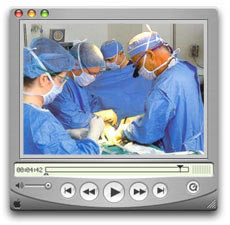Essure Procedure Reversed

Chapel Hill Tubal Reversal Center in Chapel Hill, North Carolina, announces the birth of a baby born following successful completion of sterilization reversal of the Essure procedure, previously considered a permanent form of female birth control.
Julia Smith, RN, ASCA, Nurse Administrator at Chapel Hill Tubal Reversal Center posted:
Tubal Reversal Surgeons successfully reverse sterilization procedure.
FOR IMMEDIATE RELEASEMarch 30, 2011
(Chapel Hill, NC) – Chapel Hill Tubal Reversal Center in Chapel Hill, North Carolina, announces the birth of the first baby born following successful completion of sterilization reversal of the Essure procedure, previously considered a permanent form of female birth control.

The Essure procedure involves placing a flexible coil or micro-insert into each fallopian tube at the junction of the uterus and the tube. Once in place, over a 3-month period, scar tissue grows into the coils blocking the tubes to prevent the sperm from fertilizing the egg. According to Conceptus, Inc., the manufacturer of Essure, Essure sterilization is permanent and irreversible due to this scarring. The procedure Dr. Berger and Dr. Monteith used to reverse the Essure method involved cutting the devices out of the uterine muscle and fallopian tubes and then implanting the remaining fallopian tube segments into the uterine cavity through a new opening in the uterus. This procedure is called tubouterine implantation.
Since Essure has only been available since 2002 – and most women who have had this sterilization procedure do not desire or seek reversal - there is currently not enough data on the outcomes of Essure reversal to provide pregnancy statistics. The tubal reversal surgeons at Chapel Hill Tubal Reversal Center, however, have subsequently performed additional Essure reversals and several other women are currently pregnant and due to deliver babies.
Chapel Hill Tubal Reversal Center is the only facility in the United States that is limited specifically to the practice of tubal reversal surgery. Additional information regarding Essure sterilization reversal at Chapel Hill Tubal Reversal Center, including profiles for Dr. Berger and Dr. Monteith, can be found on the website at www.tubal-reversal.net.

